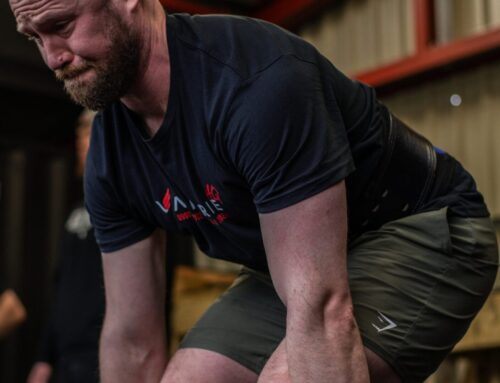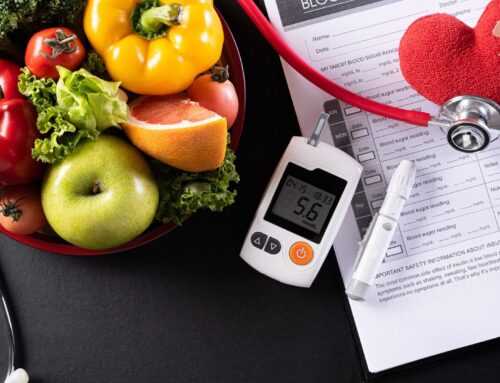Protein The Building Block of Recovery & Performance
How much protein do you need to optimise your athletic performance?
Whether you’re a weekend warrior, keen gymgoer or aspire to be a pro athlete, protein is important.
The quality and size of our meals matters as do the elements that make them up (proteins carbohydrates fats and, of course, vegetables).
This blog focusses specifically on optimising your protein requirements for your given goal.

Why is protein important?
You can think of protein as a kind of building block. Not only does it help our muscles grow, but it is also essential for repair, not only for our muscles but also our bones, skin, hair and every other cell in our body!
We can’t make protein from other foods so we must eat enough of it to thrive.
So, regardless of your goal, as a weekend warrior you’re going to want to make sure you’re getting enough.
How much is enough?
Sports people should aim for a range of 1.6-2.2g per kg of bodyweight.
These are the grams of protein you will find shown on a food label.
As a rule of thumb, 100g of raw meat (or a palm sized portion) gives 25g of protein.
Example:
If you weigh 80kg
1.6-2.2g/kg of body weight gives you a range of 130-180g of protein per day.
*that’s ~500-750g of chicken breast per day
The lower end of this range is more than likely enough for most people to gain or maintain muscle with the upper end giving a bit of a safety net for those people who may require more.
This knowledge helps you pick your own protein target. This might come down to your grocery budget (protein can be expensive), personal food tastes or simply because eating too much protein makes you overly full.
There is no real benefit to going above this range, especially because we want to make sure that your diet has enough calories available for carbohydrate to fuel performance.

How Often Should I Eat Protein?
The most important thing to focus on for now is meeting the daily protein target amount first and foremost!
Your muscles won’t fall off if you can’t manage this every day.
IDEALLY
- eat a portion of protein 2 hours before training
- eat another portion 1-2 hours afterwards
- OPTIONAL – try to eat a portion of protein every 3-4 hours
Why?
This is the geeky bit so feel free to skip this bit and trust me on the three points above!
- Muscle repair and growth is stimulated for around 3 hours after eating. So, assuming training lasts for approximately 1 hour, a meal containing an adequate serving of protein would ideally be consumed 2 hours before training in order to supply enough protein in the bloodstream to take advantage of the stimulus from training.
- Muscle repair and growth is not elevated until you eat after training so try to eat soon after if you can.
You don’t need a sit-down meal or packed lunch if you don’t want to. You can just grab a protein shake directly after training if you’re not going to eat a proper meal until later on.
If you can have a meal on completion of a workout there is some benefit to be had from eating a reasonable amount of carbohydrates at this point due to an elevation in muscle insulin sensitivity.
However, it is not necessary to consume all of your carbohydrates at this point or to avoid eating them at other points of the day. Just pick what works best for you and bear in mind this is optimal rather than essential.
If you prefer to train on an empty stomach (fasted), then try to get your post training nutrition in ASAP
- We know that it takes around 3-4 hours for muscle protein synthesis to return to baseline so that seems a reasonable point at which to ‘top it up’ (although this has not been well tested and so any ‘benefit’ is theoretical). So, if you can’t eat in this window then don’t worry too much and focus on meeting the daily target amount first and foremost.
Protein Sources
Here’s a few ideas to help…
Lean protein sources*
White fish
- Bream,Cod (plain or smoked), Coley, Monkfish etc.
Meat
- Bacon (back, trimmed), Sirloin, rump or fillet steak, Lean braising steak, Gammon, Ham, Lamb (lean), Mince (<5%), Pork loin or fillet, Veal, Chicken, Duck, Turkey, Venison, etc.
*as a rule of thumb, any meat which is less than 8g fat per 100g is a ‘lean meat’
Vegetarian protein alternatives
- Quorn, Soya beans (edemame), Tofu, Beans, peas and pulses
Supplements
- Whey protein or vegan protein powders (look for a pea and rice blend)
Protein and fat sources
- Oily fish, rib eye steak, pork belly, eggs
Dairy protein sources
- Cottage cheese, Quark, Greek yoghurt/Skyr, Milk
TAKE HOME POINT
Just pick what works best for you and bear in mind all of this this is optimal rather than essential.
If you have any questions, post them in the comments below.




Comments are closed.